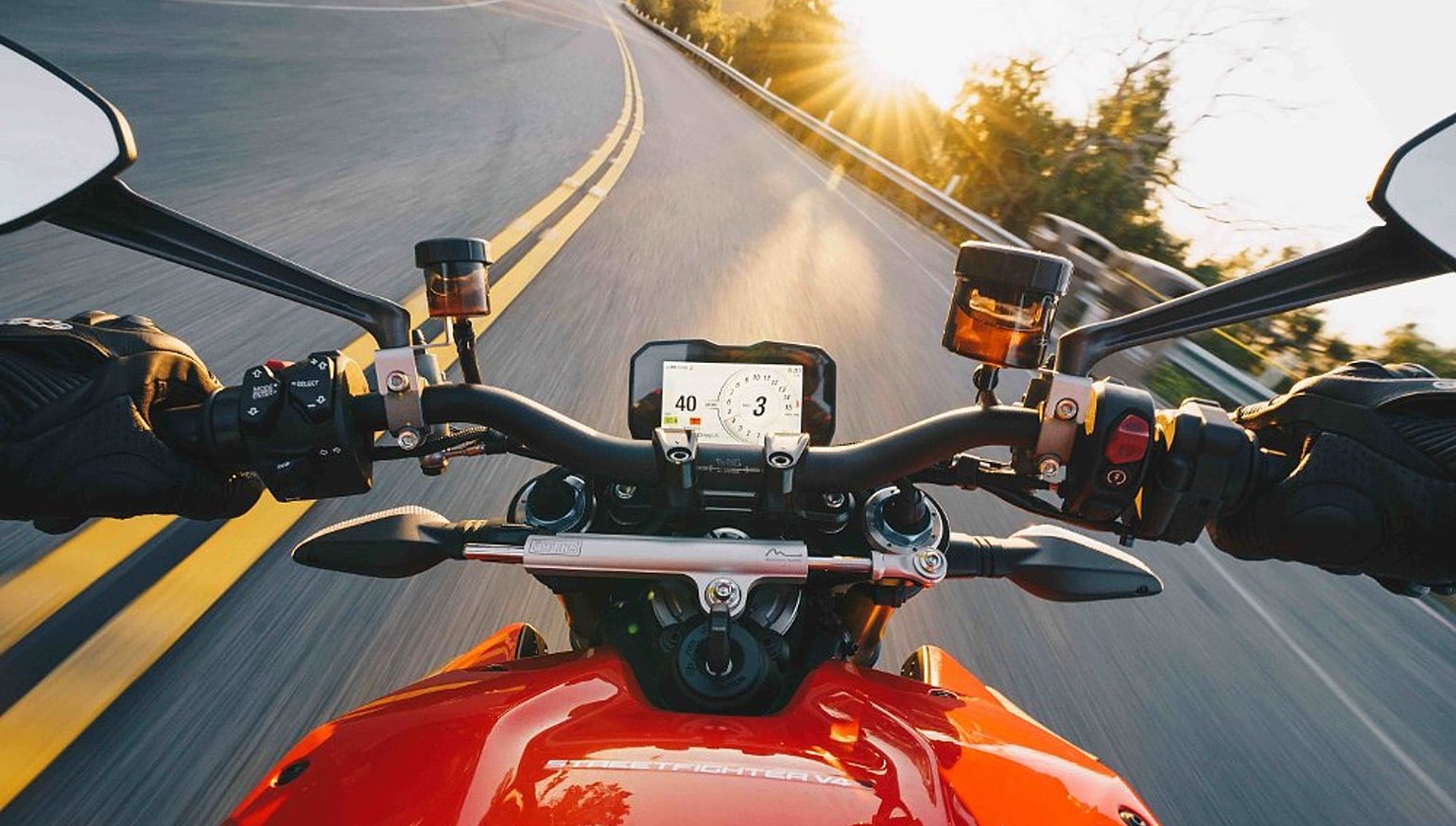Turns out, the front and rear brakes aren’t the only ways to slow a bike down.
An alternative, or more accurately a supplemental way to scrub speed is via engine braking. Engine braking is the process of reducing speed by closing the throttle and allowing engine drag to slow you down.
How does engine braking work?
When the throttle is open, air and fuel are readily pulled into the cylinder by the piston as it descends during the intake stroke. When you close the throttle the piston is still trying to draw air in, but the throttle plate is closed, so the piston is essentially sucking against a closed tube. The vacuum that’s created puts drag on the piston which slows it down, and that in turn slows down the rear wheel.

The higher the engine rpm when you close the throttle, the higher the suction and the greater the engine-braking effect, so you can increase engine braking by downshifting a gear or two.
Is engine braking bad for your engine?
The short answer is no, not in the slightest, but I can see where the concern comes from. Engine braking causes the engine to rev up and sound strained, but unless you’ve downshifted to such a low gear that the bike is spinning up into the redline, no harm is being done.
However, there are issues that armchair experts and even Wikipedia like to talk about, so let’s apply some common sense and explain why they’re not legitimate concerns.
Lack of lubrication
First up, some claim engine braking can cause damage due to a lack of lubrication. Well, the throttle controls the throttle valve, not the oil pump, so it’s still doing its thing and actively distributing oil to the transmission, piston, cams, and all the other parts, so there’s plenty of oil going around while engine braking.

If you’re on a two-stroke, where the lubricating oil is mixed in with the gas, I can see how lack of lubrication would be a concern. But fuel is still being fed via the pilot circuit, plus there’s ample residual oil in the top end to deal with a few moments of engine braking. The only scenario that might actually be a problem would be engine braking to maintain your speed on a miles-long descent, like coming down a mountain.
Wear on the transmission and clutch
OK, how about transmission or clutch damage? One of those must suffer while engine braking? No, and why would they? Both the cogs in the trans and the clutch assembly are designed to handle all of the engine’s power, and if they can endure full-throttle acceleration from a stop, they can certainly handle a fraction of that force while engine braking. So don’t worry about it. Neither the transmission gears nor the clutch plates care which direction the force is coming from. (Unless it’s a slipper clutch, which will only care when back torque, i.e. engine braking, is especially intense.)

All that being said, downshifting when the bike is already revving super high and forcing it to spin into the redline is understandably a bad idea. Don’t do that. If you do, it might actually break your engine. As in b-r-e-a-k it.
And, of course, any time you’re downshifting it’s important to rev match so your shifts are smooth and controlled and you don’t upset the chassis.
There is one real risk…
The only real, actual drawback to proper engine braking is that if that’s all you’re using to shed speed, it doesn’t illuminate your brake light, so drivers behind you might not be aware that you’re slowing down. As a guy who’s been rear-ended on the highway before, I flash my brake lights and check my mirrors any time I’m slowing down, and I recommend you do, too.
And several benefits
Okay, so engine braking is not imparting any undue strain or harm on anything. In fact, it’s actually beneficial in some ways.

For starters, using intake vacuum to slow down instead of the brakes means your brake pads and discs get a rest. It’s a small benefit, but a benefit nonetheless. And probably the most valuable use for engine braking is during long descents, when downshifting and engine braking can keep your brakes from overheating. And for sport riders and racers, engine braking is an important part of slowing down for a corner, and it ensures you’re in the meat of the engine’s rev range after the apex.
So, if you’ve been wondering if engine braking is bad for your bike, or perhaps you didn’t even know what engine braking is, now you know, and now you know that it’s viable, it’s safe, and it’s a valuable skill to have as a means of controlling your motorcycle.












